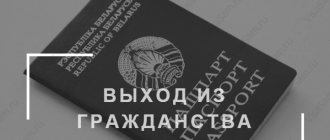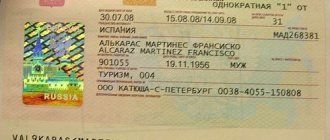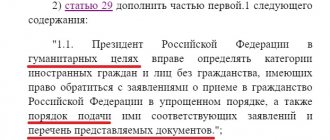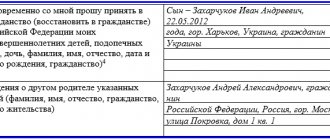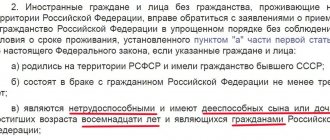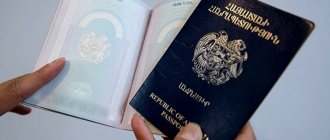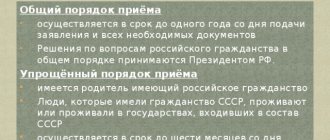Briefly about branching in the Russian Federation and the world
In international legal terminology, the concept of “acquisition of citizenship by birth” is called filiation. This is an option for acquiring citizenship by birthright. That is, a child becomes a citizen of a country in two ways:
- through his inheritance through his parents (principle of blood),
- by right of birth in a certain territory (soil principle).
It is important to note here: citizenship acquired by birth is something that has nothing to do with personal intentions. To obtain citizenship through filiation, you do not need to perform any specific actions. It is purchased automatically in accordance with the laws of the specific country.
The soil principle is implemented in some Western European countries and the USA. But in the Russian Federation both principles apply, with the predominance of the law of blood. Now let's look in more detail at aspects of Russian legislation.
What is citizenship by birth?
Acquisition of citizenship by birth, otherwise called filiation, is a procedure for registering the civil rights of a newborn in an exceptional manner.
To do this, you do not need to draw up an application for citizenship, nor do you need the written consent of the future Russian to be admitted into the ranks of the country's citizens.
Parents only need to register their children as Russian citizens (more details on how to obtain citizenship and what documents are needed for this can be found here).
Filiation is possible both on the territory of the Russian Federation and abroad.
If a child was born into a Russian family in another country, the parents must register the newborn immediately upon arrival in Russia, or, if possible, at the Russian consulate.
The legislative framework
The acquisition of Russian citizenship by birth is regulated by Article 12 of the Federal Law No. 62. A minor becomes a citizen if, on the day he was born on the territory of the Russian Federation:
- parents (or the only one) were citizens of Russia;
- one parent is Russian, and the other is stateless, a foreigner, missing or his place of residence is unknown;
- his parents were stateless or foreigners and were unable to obtain citizenship for him.
In addition, children who are within the Russian Federation acquire citizenship if their parents are unknown and do not make themselves known within six months from the date of their discovery.

Acquiring (obtaining) Russian citizenship by birth
The acquisition of Russian citizenship by birth is regulated by:
- Article 12 “Acquisition of citizenship of the Russian Federation by birth” of the Federal Law of May 31, 2002 No. 62-FZ (as amended on December 27, 2018) “On Citizenship of the Russian Federation.”
In accordance with this article of the Federal Law on Citizenship of the Russian Federation, a child acquires Russian citizenship by birth if, on the child’s birthday:
- both of his parents or his only parent have Russian citizenship, regardless of the child’s place of birth;
- one of his parents has Russian citizenship, and the other parent is stateless, or declared missing, or his location is unknown, regardless of the child’s place of birth;
- one of his parents has Russian citizenship, and the other parent is a foreign citizen, provided that the child was born on the territory of the Russian Federation or if otherwise he will become stateless;
- both of his parents or his only parent living on the territory of the Russian Federation are foreign citizens or stateless persons, provided that the child was born on the territory of the Russian Federation, and the state of which his parents or his only parent are citizens does not grant the child its citizenship .
Citizenship of a child who is on the territory of the Russian Federation and whose parents are unknown
A child who is on the territory of the Russian Federation and whose parents are unknown:
- becomes a citizen of the Russian Federation if the parents do not show up within 6 months from the date of his discovery.
According to the Determination of the Constitutional Court of the Russian Federation dated April 21, 2005 No. 118-O:
- the specified provisions of the Federal Law on Citizenship of the Russian Federation do not interfere with a person whose both parents or his only parent are recognized as citizens of the Russian Federation by birth, regardless of the place of birth of this person in the territory of the former USSR,
- in obtaining recognition of Russian citizenship by birth,
- unless this person has lost Russian citizenship by his own free will.
Acquiring Russian citizenship by birth is the most common basis on which Russian citizenship is acquired.
Wherein:
- in most cases, the place of birth of the child does not matter;
- if both parents or a single parent have Russian citizenship, the child is a citizen of the Russian Federation;
- he will also be recognized as a citizen of the Russian Federation if one of his parents at the time of the child’s birth has Russian citizenship, and the second parent is either a stateless person, or recognized as missing, or his location is unknown;
- The child’s place of birth matters if one of the parents is a citizen of the Russian Federation and the other is a foreign citizen. Their child will be recognized as a Russian citizen if he is born on the territory of the Russian Federation, or if he otherwise becomes stateless, for example, if the state of which one of his parents is a citizen does not grant the child its citizenship;
- Citizenship of the Russian Federation will also be received by a child born on the territory of the Russian Federation, both parents or whose only parent live on the territory of the Russian Federation, but are not its citizens, and the state of which they are citizens does not grant the child its citizenship. A child can become a citizen of the Russian Federation by agreement between his parents;
- The legislation on citizenship of the Russian Federation also calls a Russian citizen a child who is on the territory of the Russian Federation, but whose parents are unknown and have not shown up within 6 months from the date of his discovery;
- divorce does not entail a change in the citizenship of the Russian Federation of children born in this marriage or adopted by the spouses;
- the citizenship of a child does not change when the citizenship of his parents who are deprived of parental rights changes. In the event of a change in the citizenship of a child, the consent of his parents who have been deprived of parental rights is not required.
If you have any questions about the violation of your rights, or you find yourself in a difficult life situation, then an online duty lawyer is ready to advise you on this issue for free.
OBTAINING AND TERMINATION OF RF CITIZENSHIP
Why do you need citizenship for a child?
Most parents are of the opinion that it is not at all necessary to obtain citizenship by birth in Russia for a newborn. However, this procedure is simply necessary, since it allows the child to subsequently receive a passport upon reaching 14 years of age. Until this moment, it is not necessary to obtain citizenship only if the child does not cross the Russian border.
In addition, confirmation of Russian citizenship may be required when issuing a certificate for maternity capital. also be requested in schools and kindergartens . But such conditions are not legal.
Acquiring Russian citizenship
We are all accustomed to the fact that children born in Russia receive citizenship automatically. And this is indeed the case: the legal basis for this is laid down in the Russian legislative framework, primarily in May 31, 2002. However, this rule applies only to traditional cases when the child’s parents at the time of his birth are Russians and permanently reside in the territory of the Russian Federation. Practice is filled with a host of other cases that are reflected in domestic legislation.
Thus, whether a child born in Russia will receive citizenship primarily depends on the will of his parents and the passports they have. If foreign parents wish to transfer their citizenship to their child, and the legislation of their country of origin allows this, then they, as his legal representatives, can carry out their plans without any problems. The very fact of having a child in the Russian Federation will not become an obstacle
Therefore, it is a mistake to believe that Russian citizenship is given only by birth on the territory of the state or vice versa. So, if the child’s parents are Russians, they can give him their citizenship abroad.
What is required from the documents
Acquisition of citizenship of the Russian Federation by birth before 2007 was confirmed by a special form of insert. But now the procedure has been somewhat simplified, and the inserts have been replaced with special stamps that are affixed to the birth certificate.
To obtain the status of a Russian citizen, you must prepare your parents’ passports, birth certificate and certificate from the maternity hospital. If one parent is absent for some reason (for example, missing), you need to attach documents justifying this fact. In cases where both parents are absent, it is necessary to provide the passport of the caregiver or guardian.
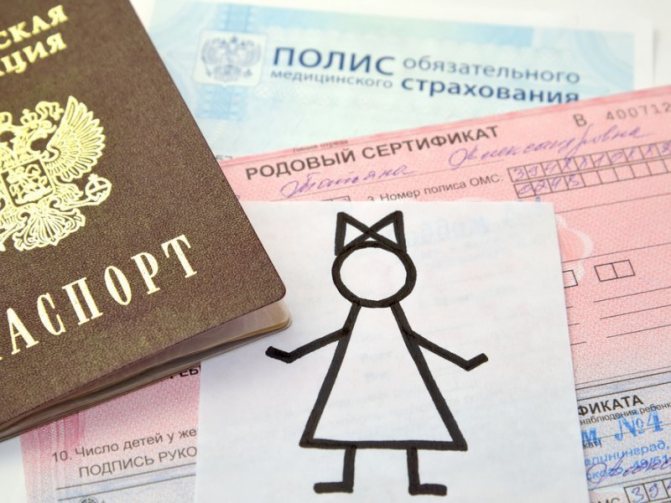
Acquiring the status of a citizen of the Russian Federation by affiliation for persons of foreign states or stateless persons
Grounds and procedure for acquiring Russian citizenship
Recognition of a child's citizenship is carried out with the consent of both parents, if they are foreign citizens, as well as stateless persons.
Until 2007, the basis for the recognition of newborns or older children in the declared rights on the territory of Russia (if they were born outside the country or if the mother and father belong to another state) was a special insert. However, in order to simplify the procedure, after this date it is enough to present a birth certificate with a stamp.
This document is issued by local civil registry offices (registry offices) or the relevant department in multifunctional centers (MFCs) of Moscow and regions if the following list of documents is available:
- marriage certificate (original);
- originals of identity documents (of both parents);
- certificate about the newborn, issued by the medical institution where the birth took place (original);
- application for a certificate (to be completed by one of the parents on site).
The official website of government services describes in detail what documents you need to have with you.
Important! Russian citizenship at the birth of children in Russia by compatriots is confirmed only by a birth certificate. In other cases, a seal from the Federal Migration Service is required.
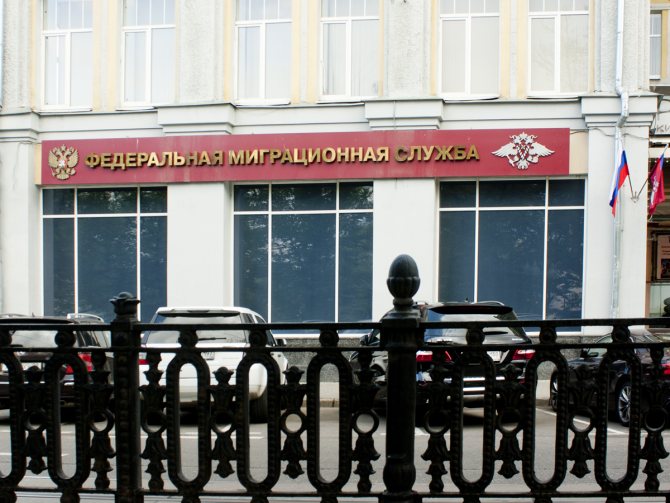
Head FMS (Moscow)
The procedure for becoming a citizen of the Russian Federation for persons born on the territory of the former Soviet Union (compatriots) is carried out in a simplified form. To do this, according to the Presidential Decree, you must have the following documents:
- original and photocopies of the passport, as well as a birth certificate in the former Union;
- a certificate signed by the authorized bodies of a foreign state stating that the currently existing country was part of the USSR.
Important! The privilege of this category of people is the opportunity to obtain documents within up to three months without passing a test for knowledge of the state language, as well as obtaining a residence permit.
If you contact the Migration Service for Foreigners, you must attach to the birth certificate a written statement from both legal representatives of the minor agreeing to the status of a Russian citizen.
If one of the parents is a person without civil status (stateless), then the authorized FMS will require proof of his legal presence in the country. These include two documents:
- residence permit (original and photocopies of all significant pages);
- a certificate from the place of official employment of the person (in accordance with the Labor Code of the Russian Federation);
- temporary residence permit (photocopy and original).
For persons who have Russian citizenship by birth, whose baby was not born on the territory of the Russian Federation, the procedure for obtaining citizenship status for a newborn becomes more complicated.
Important! At the Russian consulate on the territory of a foreign state or local authorized institutions, a birth certificate is issued in exchange for the child’s metric card, the provisions of the questionnaire indicating all his data and information about legal representatives.
Next you need to go through the following registration steps:
- translate the birth certificate into Russian;
- notarize the translated document;
- affix an apostille to the Russian Embassy on the territory of a foreign state.
The period for acquiring citizenship does not exceed 6 months from the date of acceptance of all documents.
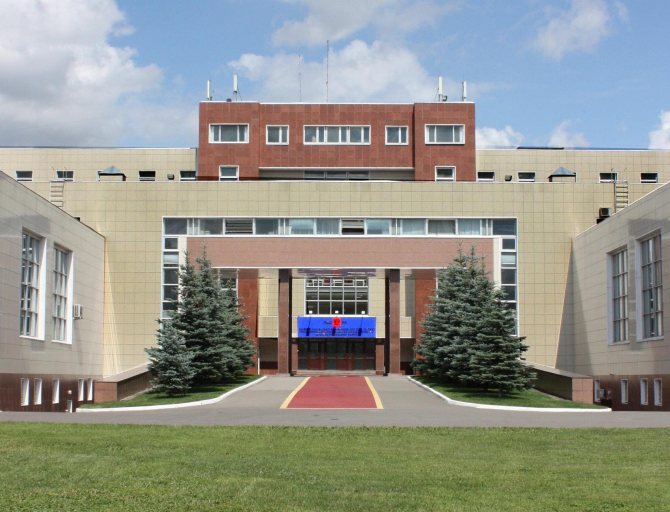
The building of the Internal Affairs Directorate of the Ministry of Internal Affairs in Moscow in the South-East Administrative District
The privilege of parents with Russian citizenship is the opportunity to submit an application with the appropriate package of documents directly to the internal affairs authorities (Ministry of Internal Affairs) of the Russian Federation.
Important! Documents for citizenship must be accompanied by a state fee of 3,500 rubles. More detailed information is described in Article 25 of the Federal Law of Russia under number 62.
How citizenship is obtained
With all the documents, one or both parents of the minor contact the migration service at the place of registration. There they write a corresponding statement, and based on it, a stamp is placed on the birth certificate after 10 working days. The situation is a little more complicated when one of the parents is a foreign citizen. At the migration service, he must sign a consent to obtain Russian citizenship for his child. Mother and father must decide on citizenship in advance.
If the second parent is stateless, then he must submit a document confirming the legality of his stay in the Russian Federation (visa, residence permit, temporary residence permit) or his lack of citizenship at the time of the birth of the child. If a minor has been adopted, you must additionally submit a certificate confirming this fact to the migration service.
How to apply correctly?
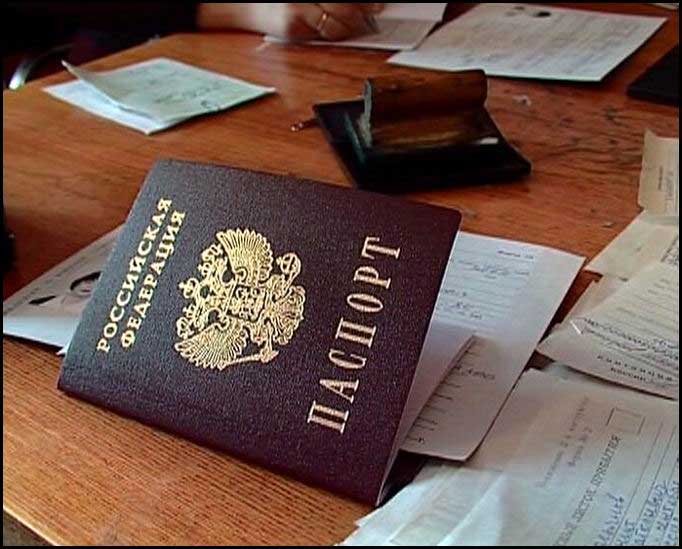
After receiving the certificate, one of the parents (or both) must contact the FMS with their passport. This authority will put a special stamp, such a stamp will be 100% confirmation that the child is a legal citizen of the Russian Federation.
If one of the parents is a foreigner, documents confirming his citizenship and a written statement that he agrees that his child will receive Russian citizenship are submitted to the FMS.
When one of the parents is a stateless person, FMS employees will additionally request a document on the legality of his residence in Russia (residence permit or temporary residence permit) or it will be necessary to confirm that at the time of the child’s birth the parent did not have citizenship of any country.
For an adopted child, there are other requirements: in addition to the passport of the adoptive parents and the baby’s birth certificate, you will also need to submit an adoption certificate (it is issued after a positive court decision).
It is important
The FMS reviews submitted papers up to 10 days from the date of filing the application.
If the minor was not born in Russia
In this case, the procedure for obtaining citizenship begins with obtaining a metric card (it replaces a certificate from the maternity hospital and may have different names). The card indicates the names of the father and mother, date of birth, and the full name of the medical institution where the child was born.
The process of acquiring Russian citizenship by birth will be as follows:
- Obtaining a birth certificate from the local administration based on the metric card.
- Translation of the certificate into Russian and its notarization.
- Submitting documents to a Russian consular or diplomatic office, issuing an apostille and submitting an application for acquisition of citizenship.
In this case, the first point of the above diagram can be skipped. The certificate can also be issued by the consulate. But this is sometimes incorrect because the procedure varies depending on the state of residence.
It is important to note that if the certificate was obtained in another state, the Russian authorities in our country will not issue a new document. The certificate will need to be legalized by the migration service. In this case, the child will be recognized as a Russian citizen.
Conditions for obtaining the status of a citizen of the Russian Federation by affiliation
According to the law of the Russian Federation regarding issues of acquiring citizenship, legal status can be obtained if the following grounds exist:
- at the birth of a child;
- as a result of a positive decision on admission to Russian citizenship;
- by restoration of citizenship;
- in other cases reflected in the legislation.
Acquiring citizenship by birth is called filiation. This term translated from the Latin “filialis” means “filial”. From a legal point of view, Russian citizenship by birth is acquired according to three principles:
- by right of soil;
- by right of blood;
- by right of inheritance.
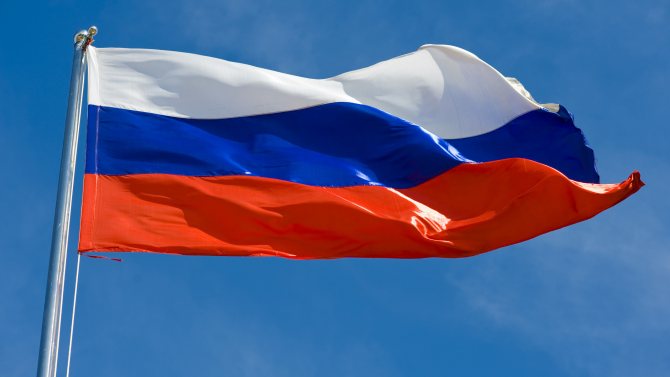
State flag of the Russian Federation
In the first case, the status of a citizen is assigned by authorized bodies regardless of the citizenship and status of the parents. Examples of such countries are Sweden, Norway, Denmark, and the USA. However, this right can only be used if the parents are declared missing.
The basis referred to by legal practitioners in the second case reflects the child’s acquisition of status without territorial reference to the place of his birth according to the citizenship of his parents. This principle is widespread among European countries.
Becoming a citizen by inheritance is a rare practice, currently practiced only in Romania. According to it, a minor is considered a citizen of a given country when he is born after the legal death of his parents.
Note! Acceptance of a person into citizenship of a state is called naturalization. It is possible to become the legal owner of Russian documents if this does not contradict the wishes of the person. The very name “naturalization” is historically interpreted as “rooting”, “acquiring” rights in a given country.
What documents are needed
Previously, recognition as a Russian citizen was confirmed by a special insert, but now this rule has not worked for a long time and the procedure is limited to a stamp directly on the birth certificate.
In order for a newborn to receive legal citizenship status, parents first have to collect a package of documents for a birth certificate, which includes:
- Passports of the parents or one of them, if the child’s other parent is not present. The passport details will be different if you submit foreign ones, but this will not be a problem.
- A birth certificate issued in a maternity hospital, or a statement from a person who delivered a child outside a medical institution.
This will be enough to obtain a document confirming birth in the country. Since this document is an official confirmation of the identity of a young citizen until his 14th birthday, documents to become a citizen must be submitted in the first month of the child’s life. Otherwise you will face a fine.
States that grant citizenship to parents after the birth of a child on their territory
When deciding which country is best to give birth to a child in order to obtain citizenship, it is important to know that there are a number of powers that also grant their citizenship to the parents of the newborn.

In particular, such rules apply in some Latin American countries. For example, if a baby was born in Mexico or Brazil, then his parents, who have been permanently residing in these countries for two years without a break, have the right to receive a passport from one of these countries.
Countries that grant citizenship by birth on their territory ("right soli")
The 2021 list of countries that grant citizenship to babies born on their soil includes countries in North and South America, the African continent, Europe and Asia.
To open up prospects for free movement around the world, high-class medical care, obtaining an international diploma and a prestigious job for your child, you should know in which countries land rights at birth are relevant and choose the right country of second citizenship.
Former USSR countries
Wanting to preserve their ethnic composition and reduce the massive influx of immigrants, post-Soviet states rarely grant citizenship according to the “right of the soil.”
The Baltic countries, which became sovereign powers after the collapse of the USSR, legislated for obtaining citizenship by “right of blood.” For example, a newborn can become an Estonian citizen if one of his parents is Estonian.
In Latvia, the citizenship of a child is issued provided that the mother or father of the child is Latvian. Only orphans and children found on the territory of the state, about whose parents nothing is known, as well as direct descendants of Latvians - citizens of Latvia as of June 17, 1940, are entitled to obtain citizenship by birth on Latvian soil.
Of all the countries of the former socialist camp, only Romania is ready to grant citizenship to all babies born on its soil.
European states
Some Western European countries are ready to establish legal ties with persons born on their soil. In particular, these are states such as:
- Great Britain;
- Germany;
- Italy;
- France;
- Spain;
- Denmark;
- Belgium;
- Ireland;
- Greece.
When planning a birth in Europe, remember that Western European countries, before recognizing children born on their territory as their citizens, require a number of requirements to be met, after which citizenship is granted.
Countries of America, Africa and Asia
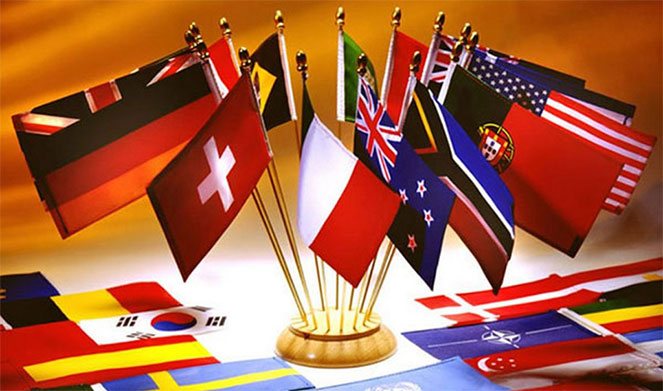
States of North and South America that grant their citizenship to children born on their territory automatically, without the requirement to fulfill additional conditions:
- Antigua and Barbuda;
- Argentina;
- Barbados;
- Belize;
- Bolivia;
- Brazil;
- Costa Rica;
- Dominica;
- Ecuador;
- Salvador;
- Grenada;
- Guatemala;
- Guyana;
- Honduras;
- Jamaica;
- Mexico;
- Dominican Republic;
- Venezuela;
- Grenada;
- Colombia;
- Nicaragua;
- Panama;
- Paraguay;
- Peru;
- Saint Lucia;
- Saint Christopher and Nevis;
- Saint Vincent and the Grenadines;
- Trinidad and Tobago;
- Uruguay;
- Chile;
- USA;
- Canada.
Planning to have a child in the USA is quite popular among Russians.
Asian states practicing "law of the land":
- Fiji;
- Malaysia;
- Pakistan.
The only African country that grants citizenship to children based on their place of birth is Lesotho.

